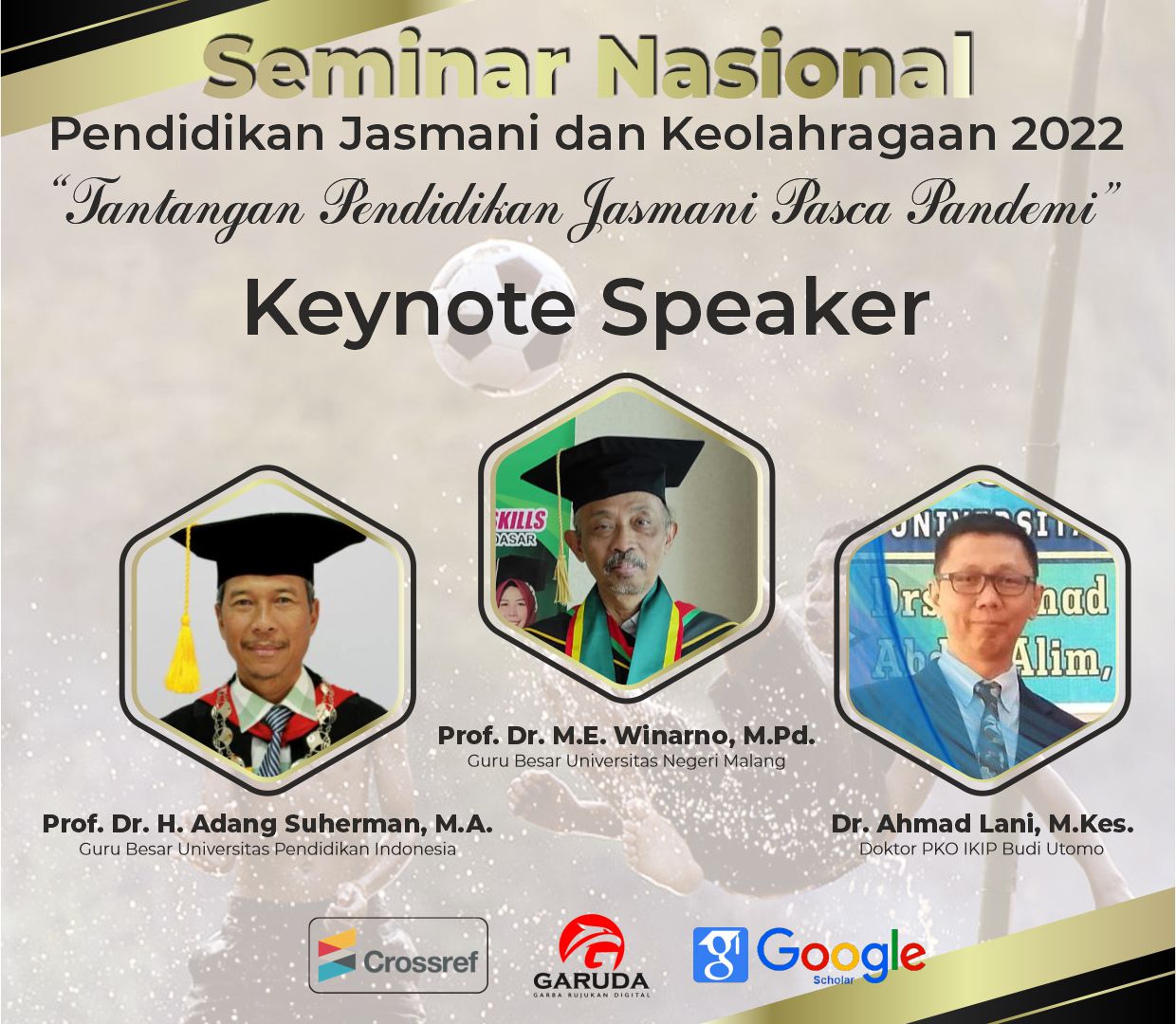Analysis of Fine Motor Skills Using the Coloring Method in Students with Mental Impairment Mustika Home Schooling
Abstract
Fine motor skills are movements that only involve certain body parts that are only carried out by small muscles, therefore, in fine motor skills, the element of energy is not really needed, but rather careful and thorough coordination of body parts. Mental retardation is an individual who has been identified by a psychologist who has sluggishness in thinking and learning, as well as difficulty in pronunciation. This study aims to describe the fine motor skills of mentally retarded students Mustika Home Schooling in physical education lessons using the coloring method. This research uses qualitative or naturalistic methods because it is carried out in natural conditions. For the research method, the researcher uses a qualitative method, which is a research procedure that produces descriptive data in the form of written or spoken words of people and observable behavior. Qualitative approach has natural characteristics (natural serfing) as a source of direct data, descriptive, process is more important than results. Data collection is done by using the method of observation or observation. The results of this study indicate that there is a change in the coloring of the pattern in Figures 1, 2, 3 in Dastan and Arjuna. Researchers can conclude that Dastan and Arjuna have good motor skills, it is slowly proven by how they color the patterns of the pictures given.
References
Battaglia, G., Alesi, M., Tabacchi, G., Palma, A., & Bellafiore, M. (2019). The development of motor and pre-literacy skills by a physical education program in preschool children: A non-randomized pilot trial. Frontiers in Psychology, 9(JAN), 1–10. https://doi.org/10.3389/fpsyg.2018.02694
Bootsma, J. M., Caljouw, S. R., Veldman, M. P., Maurits, N. M., Rothwell, J. C., & Hortobágyi, T. (2021). Neural Correlates of Motor Skill Learning Are Dependent on Both Age and Task Difficulty. Frontiers in Aging Neuroscience, 13(March), 1–17. https://doi.org/10.3389/fnagi.2021.643132
Escolano-Pérez, E., Herrero-Nivela, M. L., & Losada, J. L. (2020). Association Between Preschoolers’ Specific Fine (But Not Gross) Motor Skills and Later Academic Competencies: Educational Implications. Frontiers in Psychology, 11(June), 1–19. https://doi.org/10.3389/fpsyg.2020.01044
Geertsen, S. S., Thomas, R., Larsen, M. N., Dahn, I. M., Andersen, J. N., Krause- Jensen, M., … Lundbye-Jensen, J. (2016). Motor skills and exercise capacity are associated with objective measures of cognitive functions and academic performance in preadolescent children. PLoS ONE, 11(8), 1–16. https://doi.org/10.1371/journal.pone.0161960
Hu, X., Wang, H., Han, Z. R., Zhao, Y., & Ke, L. (2021). The influence of visual supports and motivation on motor performance of the MABC-2 for Chinese school-aged children with autism spectrum disorder. Scientific Reports, 11(1), 1–8. https://doi.org/10.1038/s41598-021-95155-8
Kamphorst, E., Cantell, M., Van Der Veer, G., Minnaert, A., & Houwen, S. (2021). Emerging School Readiness Profiles: Motor Skills Matter for Cognitive- and Non-cognitive First Grade School Outcomes. Frontiers in Psychology, 12(November), 1–20. https://doi.org/10.3389/fpsyg.2021.759480
Ludyga, S., Pühse, U., Gerber, M., Mücke, M., Lemola, S., Mori, A. C., … Weber, P. (2021). Very preterm birth and cognitive control: The mediating roles of motor skills and physical fitness. Developmental Cognitive Neuroscience, 49(March), 100956. https://doi.org/10.1016/j.dcn.2021.100956
Odeh, C. E., Gladfelter, A. L., Stoesser, C., & Roth, S. (2022). Comprehensive motor skills assessment in children with autism spectrum disorder yields global deficits. International Journal of Developmental Disabilities, 68(3), 290–300. https://doi.org/10.1080/20473869.2020.1764241
Ohara, R., Kanejima, Y., Kitamura, M., & Izawa, K. P. (2020). Association between social skills and motor skills in individuals with autism spectrum disorder: A systematic review. European Journal of Investigation in Health, Psychology and Education, 10(1), 276–296. https://doi.org/10.3390/ejihpe10010022
Pitchford, N. J., Papini, C., Outhwaite, L. A., & Gulliford, A. (2016). Fine motor skills predict maths ability better than they predict reading ability in the early primary school years. Frontiers in Psychology, 7(MAY), 1–17. https://doi.org/10.3389/fpsyg.2016.00783
Priyono, A., Sahudi, U., & Hendrayana, Y. (2021). Improvement on gross motor skills of intellectual disability students through games. International Journal of Human Movement and Sports Sciences, 9(4), 20–24. https://doi.org/10.13189/saj.2021.091304
Taverna, E. C., Huedo-medina, T. B., Fein, D. A., Eigsti, I., & States, U. (2022). HHS Public Access. 1–29. https://doi.org/10.1016/j.rasd.2021.101824.
The Yu, T. Y., Chou, W., Chow, J. C., Lin, C. H., Tung, L. C., & Chen, K. L. (2018). IQ discrepancy differentiates levels of fine motor skills and their relationship in children with autism spectrum disorders. Neuropsychiatric Disease and Treatment, 14, 597–605. https://doi.org/10.2147/NDT.S153102




.png)

